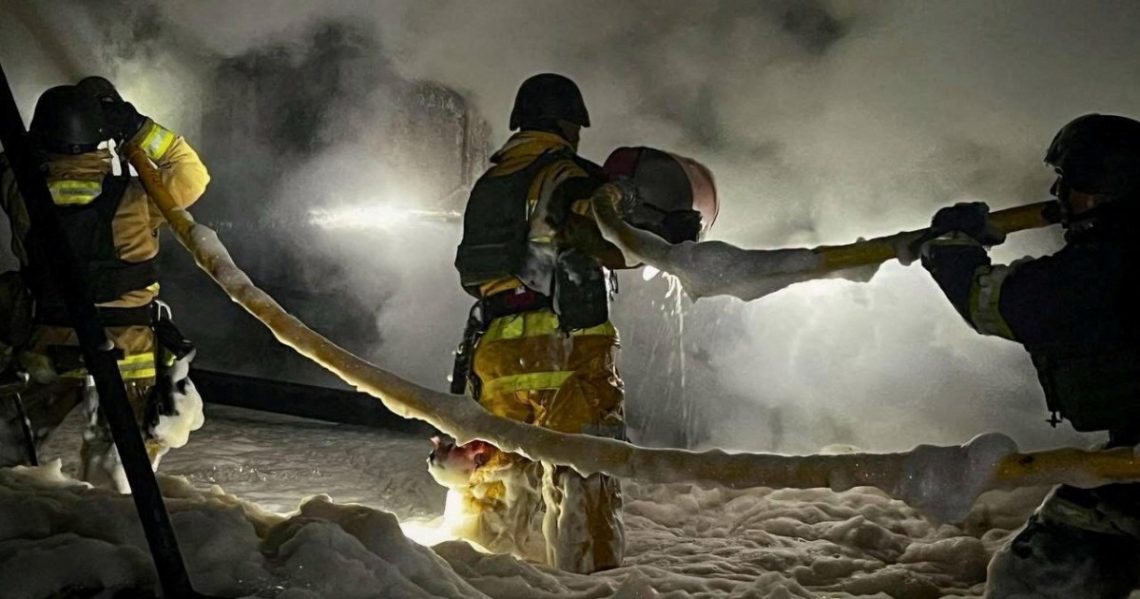The energy ministers of the Group of Seven nations (G7) have issued a joint statement condemning Russia’s attacks on Ukraine’s energy system, after authorities in Kyiv described Moscow’s most recent barrage as akin to “nuclear terrorism”.
In a Friday statement, the G7 energy ministers – representing Canada, France, Germany, Italy, Japan, the United Kingdom and the United States – said Russia’s attacks “continue to inflict devastating social, environmental, and economic consequences on the Ukrainian people”.
“Russia’s recent attacks on Ukraine’s natural gas infrastructure have created risks to communities and human lives, weakening civilian infrastructure and the energy security of the Ukrainian people,” it said.
The G7 statement said it continues to support the reconstruction of Ukraine’s energy sector “through direct financial assistance, credit facilities, risk insurance, policy and resource alignment, as well as setting conditions for long-term private sector investment”.
Over recent weeks, Ukraine has accused Russia of repeatedly attacking critical civilian energy infrastructure ahead of the bitterly cold winter months in order to inflict suffering on its population.
Most recently, Ukrainian Prime Minister Yulia Svyrydenko said Moscow’s “goal is to plunge Ukraine into darkness”, after a wave of Russian attacks hit energy facilities in central, western, and southeastern regions of the country on Thursday, killing seven people.
“Russia continues its systematic energy terror – striking at the lives, dignity, and warmth of Ukrainians on the eve of winter,” Svyrydenko said.
“To stop the terror, we need more air defence systems, tougher sanctions, and maximum pressure on the aggressor,” she added.
On Friday, Ukraine’s Ministry of Foreign Affairs denounced what it said were “targeted strikes” by Russian forces on substations critical to supplying external power for Ukraine’s nuclear power stations.
“Deliberate strikes on civilian energy facilities that directly affect the safe operation of nuclear installations bear the hallmarks of nuclear terrorism and constitute a grave violation of international humanitarian law,” it said.
Kyiv announced nationwide limits on electricity supplies to retail and industrial consumers following Thursday’s attacks, while water supplies and heating were also disrupted in some regions.
The United Nations’ International Atomic Energy Agency (IAEA) also said three Ukrainian nuclear power plants were forced to reduce output due to the assault.
“The dangers to nuclear safety continue to be very real and ever-present,” IAEA Director General Rafael Grossi warned.
“I once again call for maximum military restraint in the vicinity of nuclear facilities,” he added.
Moscow denies it targets civilians. It claims its strikes are simply a response to Ukraine’s attacks on Russian civilian infrastructure.
Moscow and Kyiv regularly accuse each other of targeting one another’s energy sites, as well as engaging in military activity that compromises safety at Ukraine’s four working nuclear plants.
The Zaporizhzhia nuclear power plant, seized by Russian forces in the early weeks of Moscow’s February 2022 invasion of Ukraine, has become a prime concern for the IAEA as fighting rages nearby.
On October 23, the Russian-installed administration of Zaporizhia said it had repaired a damaged high-voltage line and restored external power to the plant.
It had been without external electricity for 30 days and relying on backup diesel generators since September 23, when its last remaining external power line was severed in attacks that each side blamed on the other.
Europe’s largest nuclear plant, with six reactors, Zaporizhzhia, currently produces no electricity, but needs external power to cool the nuclear fuel and avoid any catastrophic nuclear incidents.
The post G7 slams Russian attacks on energy as Ukraine decries ‘nuclear terrorism’ appeared first on Al Jazeera.




